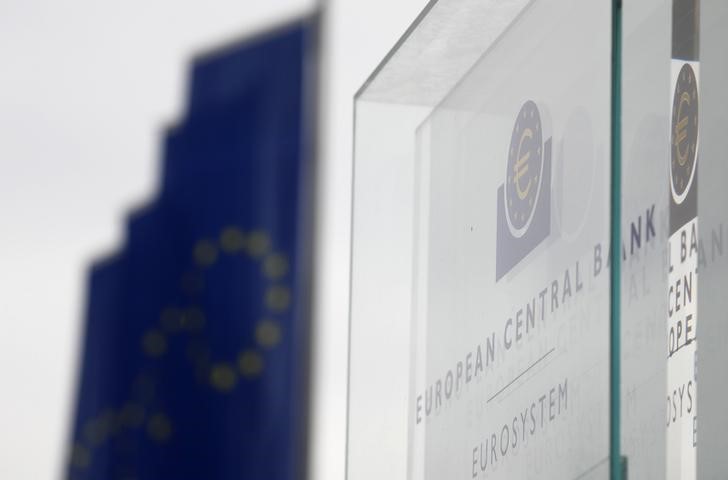Investing.com’s stocks of the week
By Balazs Koranyi
FRANKFURT (Reuters) - European Central Bank policymakers meeting last month rejected even a token change in the bank's policy message, arguing that it was premature to signal policy normalization given weak inflation, the minutes of the meeting showed on Thursday.
Discussion over tweaking the bank's stance could still start early this year, concluded the ECB's Governing Council, which will meet next on March 8. But with inflation still not moving decisively higher they were wary about euro volatility and keen to avoid any disorderly market reaction to a shift in stance.
The minutes suggest that rate-setters are in no hurry to adjust policy, even as markets expect the bank's unprecedented 2.55 trillion euro asset purchase program to finally expire this year, more than three years after its launch.
"Changes in communication were generally seen to be premature at this juncture," policymakers said. "Monetary policy would continue to develop... with a view to avoiding abrupt or disorderly adjustments at a later stage."
"Some members expressed a preference for dropping the easing bias... However, it was concluded that such an adjustment was premature and not yet justified by the stronger confidence."
The easing bias, a pledge to ramp up bond buys if needed, is seen as the smallest possible change in the bank's message --essentially a token adjustment, since few if any investors see bigger purchases ahead.
Removing this easing bias is likely to be the next move in clawing back stimulus, possibly as soon as March, sources close to the discussion told Reuters earlier.
Barclays (LON:BARC) took a more conservative view, however, expecting the ECB to start adjusting guidance in April. It could first drop the easing bias, followed by tweaks to focus on the future path of interest rates.
It expects the ECB's asset purchases to end in September, with a first rate hike in December.
EURO
Highlighting a concern over the strong euro, policymakers said attempts by the United States to talk down the dollar appeared to jeopardize a decades-long deal among major economies not to target exchange rates for competitive purposes.
"There was broad agreement among members that the recent volatility in the exchange rate of the euro was a source of uncertainty which required monitoring," the minutes added.
Policymakers are especially sensitive to the euro's moves as any big rise in the currency could cut into inflation, threatening to reverse the impact of the stimulus the bank has been providing over the past three years.
"The language pertaining to the monetary policy stance could be revisited early this year as part of the regular assessment at the forthcoming policy meetings," the ECB said.
"While there was reason to be increasingly confident about the path of inflation, patience and persistence with regard to monetary policy were still warranted."
The ECB has long flagged a discussion about changes in its communication stance for "early" 2018 but policymakers said they have not yet started that process and it was not yet clear if they would have such a discussion at the next meeting in March.
Markets have calmed since the ECB's meeting and U.S. officials have also toned down their rhetoric. While the euro is 4.5 percent higher against the dollar than six months ago, it has fallen around 2 percent lower from a recent peak.
Its downward drift to current levels is likely to comfort ECB policymakers who accept some firming is justified by the euro zone's exceptional economic run.
